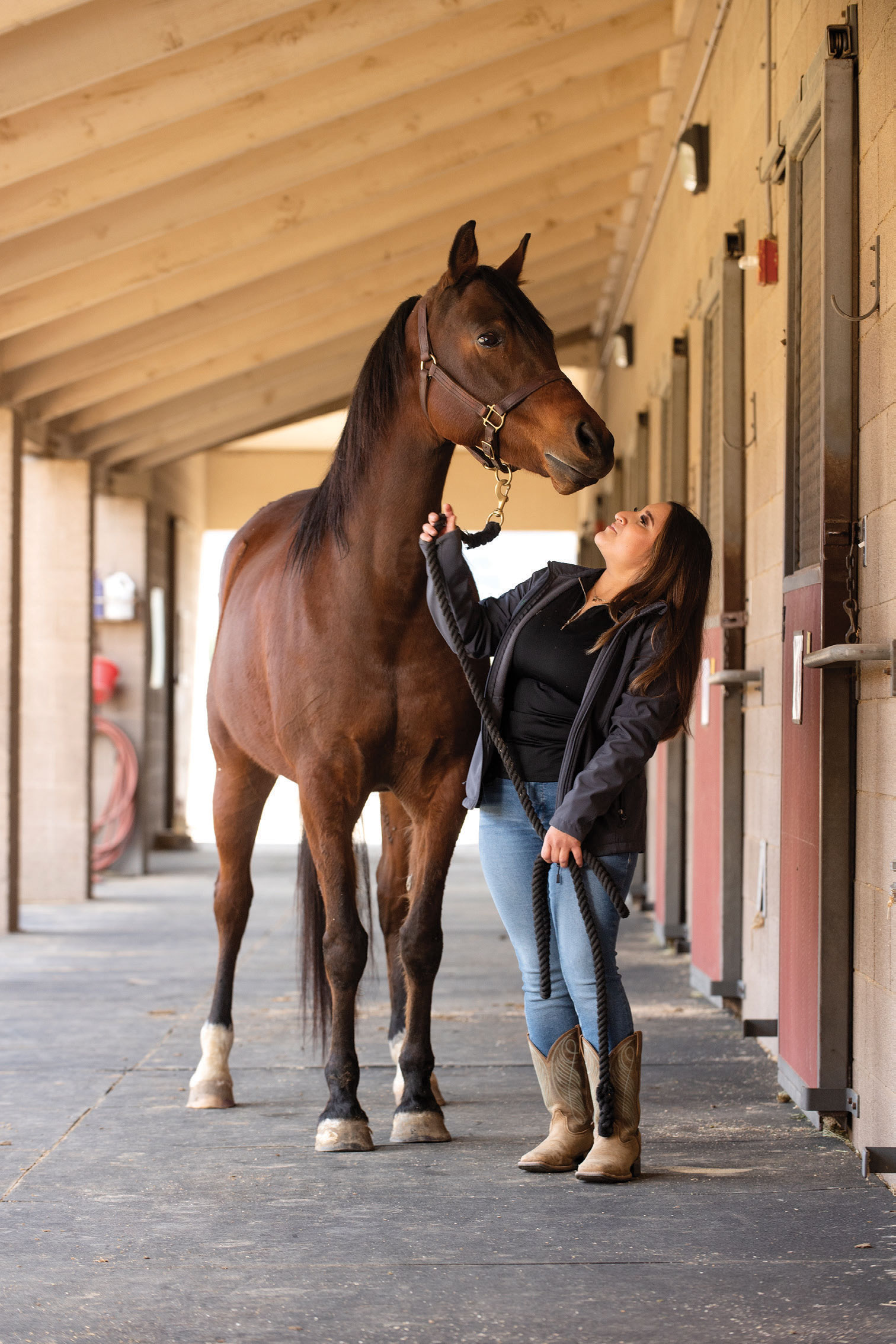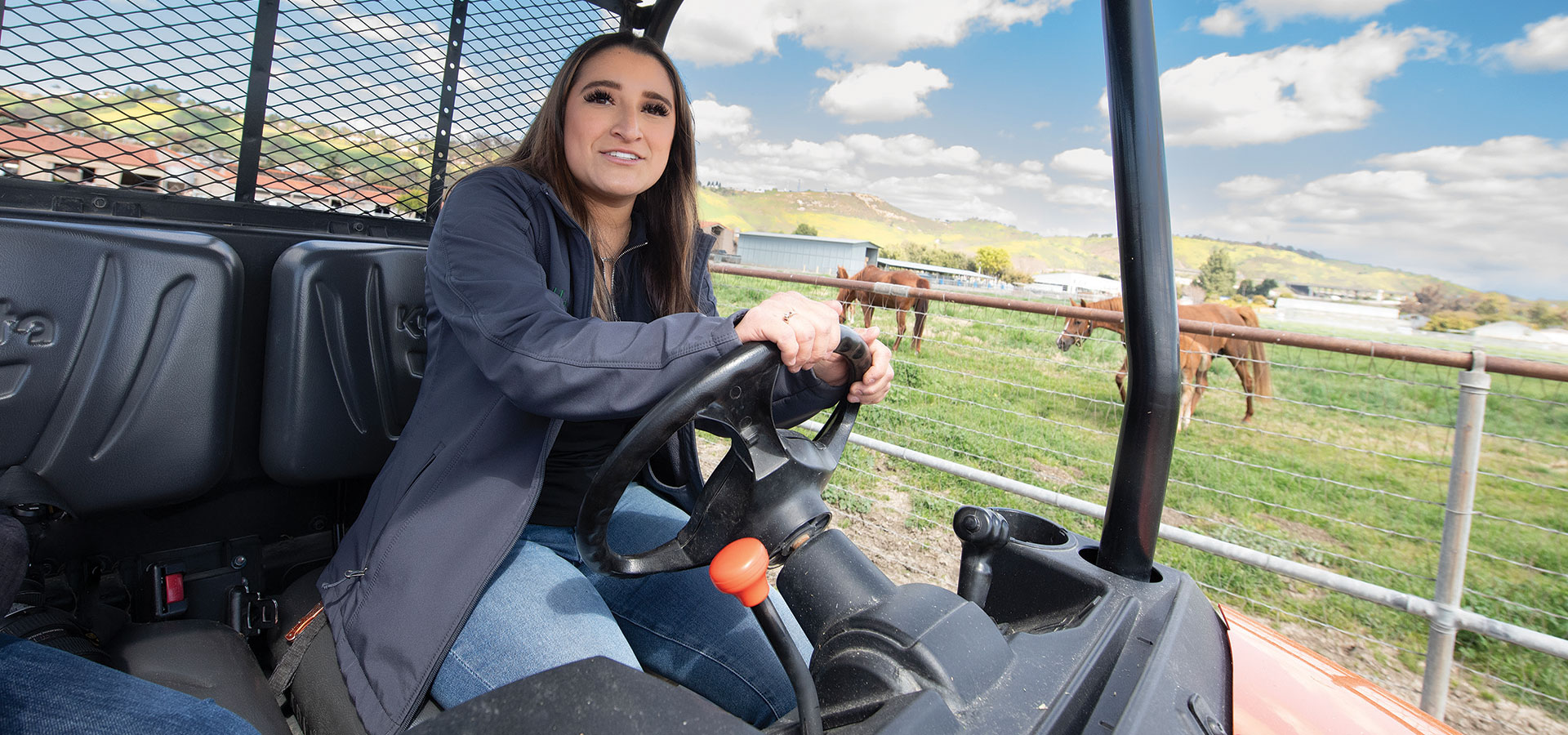Lifelong Love of Horses Spurs Grad's Career Pursuits
By Melanie Johnson
At 4, when most children are transitioning from a tricycle to a bicycle with training wheels, Hannah Esqueda was atop a horse.
Riding horses was something Esqueda and her grandfather bonded over. Their family has leased or owned horses her entire life.
“Me and my grandpa would ride together,” she says. “He would take me riding and I really enjoyed it.”
 Those early rides sparked a lifelong love of horses for Esqueda, who graduated in May with a degree in animal and veterinary science.
Those early rides sparked a lifelong love of horses for Esqueda, who graduated in May with a degree in animal and veterinary science.
When she arrived at Cal Poly Pomona as a transfer student from Fullerton College in late 2020, she found out about the live-in positions at the W.K. Kellogg Arabian Horse Center, and she knew she had to apply.
Live-ins are just that — students who live at the horse center around the clock. They help with breeding and foaling, muck stalls, feed the horses, give them their meds, and keep the grounds clean and tidy. During the pandemic, she continued to live and work at the horse center, which augmented her experiential learning opportunities.
It was a unique opportunity for Esqueda to gain hands-on experiences that will be vital when she becomes an equine veterinarian.
In the classroom, the veterinary science program provided Esqueda with a firm foundation for her future in the field, but the COVID-19 pandemic did alter the way classes were typically conducted for a time.
“I enjoyed the program and feel that I learned a lot,” Esqueda says. “I got the program from a different perspective because a lot of the classes were online. Even so, the professors were good and were understanding of our circumstances.”
As a live-in, a typical weekday involves rising early for the 6 a.m. chores. The horses get their meds at 8 a.m., followed by lunch at 11 a.m., time out in the pasture, and a 4 p.m. dinner of grain, alfalfa and Bermuda grass.
“The most rewarding aspect of being a live-in is being able to take care of the little foals,” she says. “We stay up all night watching over the mares. The most rewarding thing is new life.”
Esqueda has seen more than 20 foals born at the center, and she also does some breeding off campus.
She feels fortunate to have a job working with the animals she connects with the most.
“Their personalities can be loving at times, but they can also be spunky,” she says. “They are like big dogs.”
Post graduation, Esqueda is working in Pasadena with equine veterinarians and plans to apply to veterinary schools in the fall.
